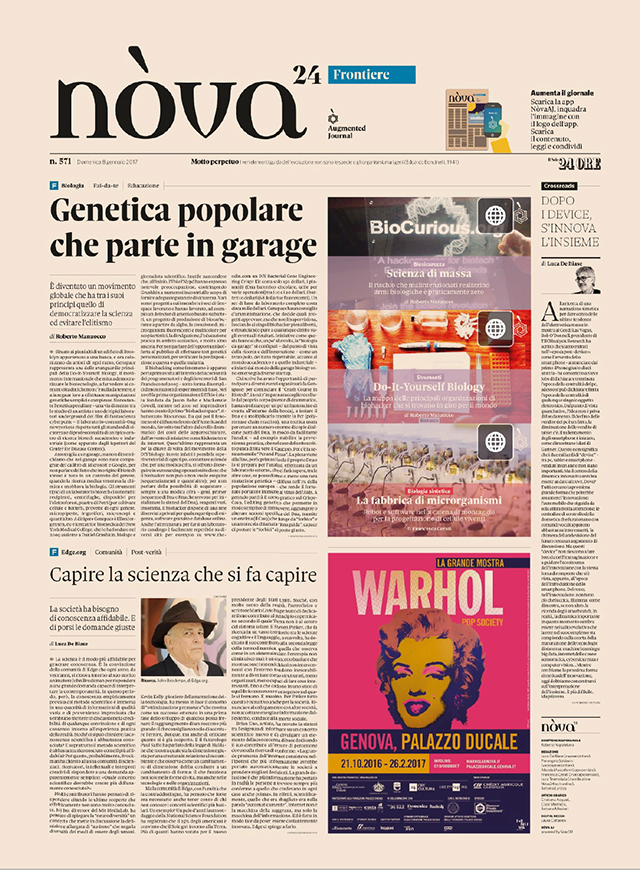Understanding Evidence-Based Science [1]

News From:
Society Needs Reliable Knowledge. Ask Yourself the Right Questions

Science is the most reliable way to generate knowledge. This is the conviction of the Edge community which every year, for the past twenty years, has gathered around its long-time driving force John Brockman to answer a big question through which we can supposedly arrive at the edge of knowledge. In this period, however, knowledge empirically derived by the scientific method reveals an amount of information of varying quality and varied provenance which would seem to question the credibility of any belief and any consensus on the practical experience of reality. So one might ask: do we know enough about scientific knowledge? And, above all, can the scientific method be recognized as the most reliable? This is probably why Brockman asked his community of scientists, researchers, intellectuals, and creative interpreters to answer a seemingly simple question: "What scientific term or concept ought to be more widely known?"
Many contributors decided to respond by citing the latest discoveries that are actually not well known. Joi Ito, Director of the MIT Media Lab, described Neurodiversity [4], a concept that challenges the definition of "autism" and embraces the diversity of ways of being human. Kevin Kelly, a pioneer in the narrative of technology, highlighted the concept of Premature Optimization [5] to show that a success obtained in the first phase of a project’s development can put a brake on a bigger success: which is a recommendation for not only accepting the mistake but also for maintaining a critical attitude regarding what has already been discovered. And the Futurist Paul Saffo wrote about Haldane's Rule of the Right Size [6], which shows every organism has an optimum size and a change in size inevitably leads to a change in form, which is applicable not only to organisms, but also to technologies and organizations.
But the Edge community, with its distinguishing humility, thought that it was necessary to also take into account those who don’t know the most basic scientific concepts. An example? A couple of years ago a survey from the National Science Foundation reported that 25% of Americans are convinced that the Sun revolves around the Earth, more Americans than those who voted for the new President of the United States. So, with great sense of reality, astrophysicist and author Mario Livio decided to dedicate his contribution to The Copernican Principle [7], which states that the Earth is not at the center of the solar system. And Steven Pinker, who does research in a vast territory between cognitive science and language, in turn, has devoted his contribution to The Second Law of Thermodynamics [8], which states that in an isolated system (one that is not taking in energy), entropy never decreases. It is a basic concept that shows how closed systems not interconnected with the outside tend inexorably to become less structured, less organized, less able to do interesting things, until they fall into a monotonous and uniform situation where they stop. And die. For Pinker, this is instructive for society. Giving up the liaison with the other societies, not accepting energy and information from outside, leads to social death.
In writing about Confirmation Bias [9], the artist Brian Eno has found a balance between the need to provide information about a new scientific concept and to divulge an element of basic knowledge by dedicating his contribution to the error of perception due to the search for confirmation: “The great promise of the Internet was that more information would automatically yield better decisions. The great disappointment is that more information actually yields more possibilities to confirm what you already believed anyway.” In fact, scientifically, what was wrong was the word "automatically." The internet is not the wisdom machine, but only the information machine. But it was conceived in such a way that it is constantly renewed through innovation. This is what Edge pushed us to do.
